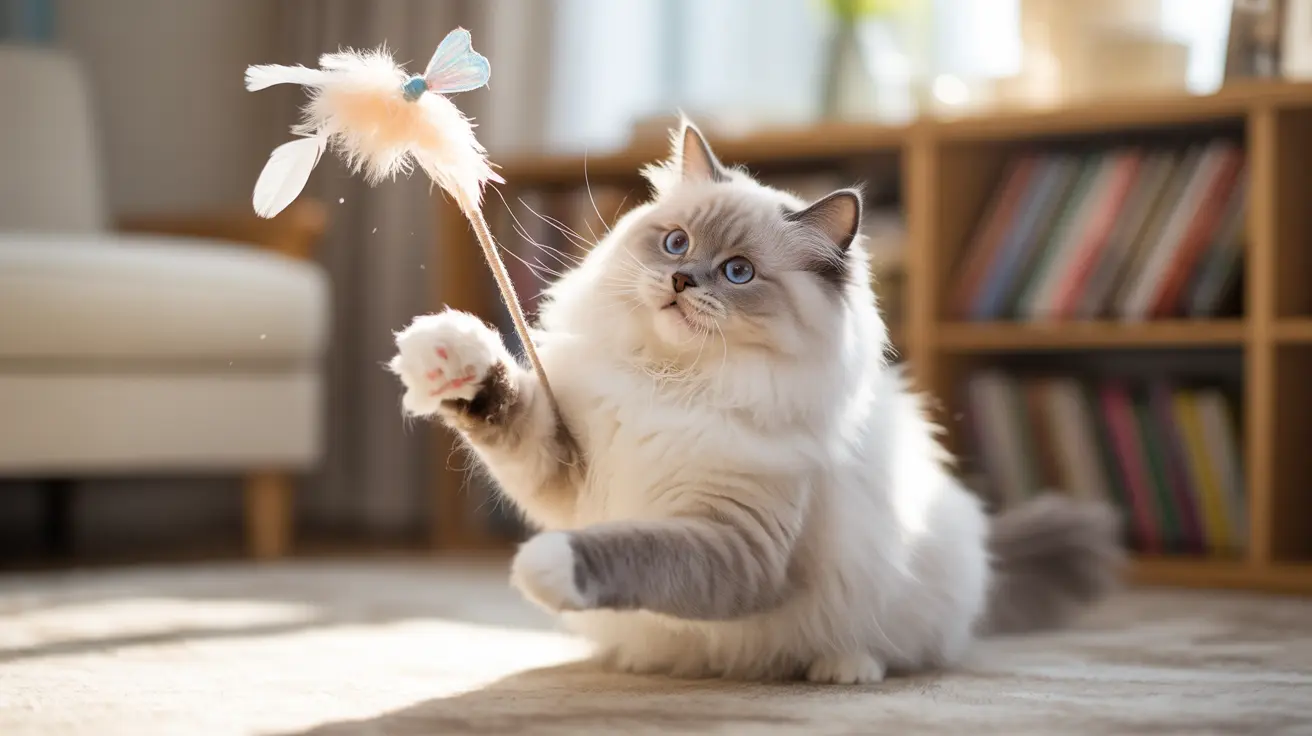As our feline friends enter their golden years, their playtime needs evolve significantly. Finding the right senior cat toys becomes crucial for maintaining both physical health and mental stimulation. This comprehensive guide will help you understand how to choose and use appropriate toys that keep your aging cat active while accommodating their changing abilities.
Understanding your senior cat's specific needs is the first step in selecting appropriate toys. With over 90% of cats older than 12 experiencing joint pain and osteoarthritis, it's essential to choose toys that encourage gentle movement without causing discomfort or strain.
Interactive Toys for Mental Stimulation
Interactive toys play a vital role in keeping senior cats mentally sharp and engaged. Studies show that regular mental stimulation can help reduce the effects of cognitive dysfunction, which affects up to 50% of cats aged 15 or older.
Some excellent interactive options include:
- Puzzle feeders with large openings
- Trackball towers with comfortable sitting positions
- Motion-activated toys that respond to gentle movement
- Soft wand toys with lightweight attachments
Gentle Exercise Toys for Physical Health
While senior cats may not bounce off walls like kittens, maintaining some physical activity is crucial for their well-being. Light exercise helps prevent obesity and maintains muscle strength, which becomes increasingly important as cats age.
Recommended exercise toys include:
- Soft plush toys for gentle batting and carrying
- Low-profile cat tunnels
- Stationary scratching posts with stable bases
- Rolling balls with bells (on flat surfaces)
Comfort-Focused Play Options
Senior cats often prefer toys that allow them to play while maintaining comfortable positions. Memory foam-based toy beds and heated play mats can make playtime more appealing by providing joint support during activity.
Consider these comfort-oriented toys:
- Catnip-infused cushions
- Thermal-responsive play mats
- Soft, lightweight crinkle toys
- Ground-level wobble toys
Safety Considerations for Senior Cat Toys
When selecting toys for older cats, safety becomes even more critical. Choose toys with smooth surfaces, avoid small parts that could become choking hazards, and ensure all toys are stable enough to prevent accidents during play.
Key safety features to look for:
- Non-toxic materials
- Soft, rounded edges
- Sturdy construction
- Easy-to-clean surfaces
Frequently Asked Questions
What types of toys are best suited for senior cats with reduced mobility and arthritis?
Soft, lightweight toys that don't require jumping or climbing are ideal. Consider plush toys, ground-level track balls, and stationary toys that can be enjoyed from a comfortable sitting position.
How can interactive and puzzle toys help keep my senior cat mentally sharp?
Interactive and puzzle toys stimulate problem-solving skills and maintain cognitive function. They provide mental exercise through food-finding games, simple puzzles, and cause-and-effect toys that reward interaction with treats or interesting movements.
Are there safe and gentle toys that encourage light exercise for older cats?
Yes, toys like soft wand toys, ground-based rolling balls, and low-profile tunnels encourage gentle movement without straining joints. These toys allow cats to exercise at their own pace while maintaining stability.
How often should I rotate or introduce new toys to keep my senior cat engaged?
Rotate toys every 1-2 weeks to maintain interest, but keep familiar favorites available. Introduce new toys gradually, one at a time, to avoid overwhelming your cat and observe their response to different types of toys.
What precautions should I take to ensure my senior cat's toys don't pose safety risks?
Regularly inspect toys for wear and tear, remove any loose parts or strings, and ensure toys are appropriate for your cat's mobility level. Place toys in easily accessible locations and avoid those requiring jumping or difficult movements.
Conclusion
Selecting appropriate toys for your senior cat doesn't have to be complicated. Focus on options that provide gentle stimulation, maintain comfort, and respect your cat's physical limitations. Regular play sessions, even if brief, can significantly contribute to your senior cat's quality of life and help maintain both physical and mental well-being.
Remember to consult with your veterinarian about specific toy recommendations based on your cat's health conditions and mobility level. With the right selection of senior cat toys, you can help your aging feline friend stay active, engaged, and happy throughout their golden years.






